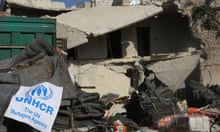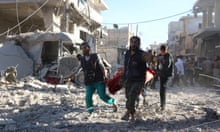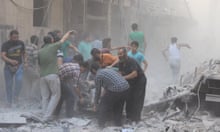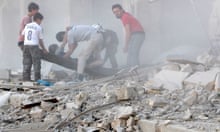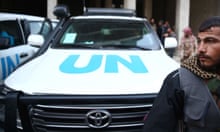Aid workers are under attack. We are bleeding out from a thousand small cuts. We are being robbed, raped and murdered in Afghanistan, South Sudan, Yemen, Syria and countless other places. The reaction from politicians, however, has been only words; promises to do better, pledges to investigate, condolences for our losses. Press releases and political assurances are not enough.
Stories of bombed hospitals and lost civilian lives have become all too common. Whether the death and violence comes from above – as in the devastating attack on the aid convoy near Aleppo – or from nearby, as in the brutalisation, rape and murder of aid workers in the Terrain Compound in Juba, one fact remains the same: those in power with responsibilities to protect humanitarian aid workers have chosen instead to blatantly disregard their obligations under international humanitarian law.
Working to help populations in protracted crises and active conflict zones has always been, and will continue to be, a dangerous endeavour. Humanitarians know that. The families and friends that we leave behind know that. And all humanitarians, myself included, accept the risks that come with our chosen profession, trusting that our principles, our purpose, our organisation and our presence among the community will provide us with the security we need.
And in some places it does. I have witnessed amazing bravery and selflessness, both from colleagues but also from people who have already lost everything yet are willing to risk even more to protect those who came to help.
But there is no safety if governments and other parties to conflicts are allowed to act as if they have no responsibilities towards us, or see us as acceptable collateral damage. There is no safety when attacks are met with silence. When a colleague and I were in South Sudan last November, we heard of several recent violent attacks against aid workers. Despite clear confirmation of the incidents, none were reported or condemned publicly by the political leadership. The incidents became security anecdotes – devoid of humanity, dismissed as rumour. Impunity for prior attacks, the weakness of the United Nations Mission in South Sudan as a protection force, the negative local public campaign against NGOs, and the relentless intimidation of humanitarians were not the only factors, but all contributed in their own way to the Terrain incident.
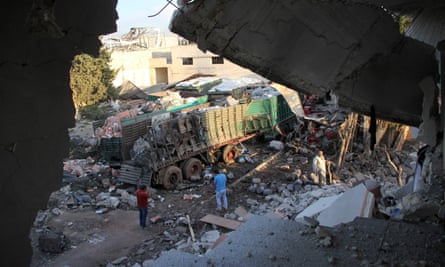
During my last trip to the border of Syria in May this year, my colleagues and I met with NGOs carrying out cross-border programmes. We spoke with aid workers who regularly travel back into Syria. They spoke of living under the constant threat of attack. We learned of the tenuousness of their lifeline to help, with access and security situations changing often daily.
The indiscriminate attacks from above on civilians, hospitals and rescue efforts in Syria have all been called out before, and yet they continue to happen. As with the Terrain incident, the recent savage and sickening attack on the aid convoy near Aleppo is indicative of the increasing boldness by warring parties in wilfully ignoring their responsibilities to civilians.
Humanitarian organisations cannot make appropriate safety and security decisions, from how to keep people safe to whether they even wish to work in Afghanistan, Syria, Yemen or elsewhere, without accurate information on what risks exist. And we cannot assist and assure others when it is unclear who, if anyone, can be called upon to help aid workers when all else fails.
As a community uncomfortable with even having a day of commemoration to mark our sacrifices, humanitarians strive to ensure the conversation is not about ourselves, even when it may be costing us our lives. And so despite, or rather because of, the existence of intimidation, fear and mistrust, aid workers have grown ever more silent. During a maelstrom of insecurity, we are trapped between choosing ourselves or those we are working to serve.
Stories of attacks, robberies, rapes and murders keep arriving. Some are hidden, but some so widely reported by the press it is impossible for the world to ignore. The flurry of public statements about the Terrain incident, almost a month after it occurred but days after the story broke, further prove that some truths are only known when they are on the front page.
There comes a time when enough is enough, when even the most altruistic among us become angry. That time is now. World leaders must recognise and respect those who rush in to help when all others turn away, and provide humanitarians the protection they need and deserve.
Stop the attacks, and hold accountable those who seek to harm us. The time for talk is over.
Patricia McIlreavy is the vice president of Humanitarian Policy and Practice at InterAction, the largest US alliance of international relief and development organisations.


